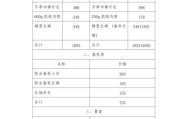服装erp软件排行2019
Title: Exploring the Realm of Clothing ERP Systems
In the dynamic world of fashion, managing the intricate processes involved in clothing production, distribution, and retailing requires robust software solutions. Enterprise Resource Planning (ERP) systems tailored for the apparel industry play a pivotal role in streamlining operations, optimizing efficiency, and enhancing competitiveness. Let's delve into the realm of Clothing ERP Systems, exploring their functionalities, key players, and considerations for selection.

Understanding Clothing ERP Systems
Clothing ERP systems are comprehensive software solutions designed specifically to meet the unique needs of the fashion and apparel industry. These systems integrate various aspects of business operations, including:
1.
Product Lifecycle Management (PLM):
From design conceptualization to production and distribution, PLM modules facilitate seamless collaboration and management of the entire product lifecycle.2.
Supply Chain Management (SCM):
SCM functionalities enable efficient management of the supply chain, encompassing procurement, inventory management, vendor collaboration, and logistics.3.
Inventory and Warehouse Management:
Effective inventory and warehouse management functionalities ensure optimal stock levels, accurate tracking of inventory movements, and efficient utilization of warehouse space.4.
Sales and Order Management:
Sales and order management modules facilitate the processing of customer orders, from order placement to fulfillment, invoicing, and delivery tracking.5.
Financial Management:
Financial management features encompass accounting, budgeting, invoicing, and financial reporting, providing insights into the financial health of the business.6.
Customer Relationship Management (CRM):
CRM functionalities assist in managing customer interactions, tracking customer preferences, and enhancing customer satisfaction and retention.Key Players in the Clothing ERP Market
Several software providers specialize in offering ERP solutions tailored for the clothing and fashion industry. Some prominent players include:
1.
SAP Fashion Management:
SAP offers a comprehensive ERP solution specifically designed for the fashion industry, covering all aspects from design to distribution.2.
Microsoft Dynamics 365 for Finance and Operations:
Microsoft's ERP solution includes features relevant to clothing manufacturers and retailers, such as supply chain management and retail management.3.
Infor Fashion PLM:
Infor provides a suite of ERP solutions, including Infor Fashion PLM, which caters to the unique needs of fashion brands and retailers.4.
BlueCherry by CGS:
BlueCherry is a popular ERP solution for apparel and consumer goods companies, offering modules for PLM, SCM, and ERP.5.
NetSuite SuiteCommerce:
NetSuite's ERP solution includes SuiteCommerce, which integrates ecommerce capabilities with core ERP functionalities, suitable for clothing retailers operating online.Considerations for Selecting a Clothing ERP System
When selecting a clothing ERP system, several factors should be taken into account:
1.
Scalability:
Choose a system that can scale with your business as it grows, accommodating increasing transaction volumes and expanding operations.2.
Customization:
Look for a solution that can be customized to align with your specific business processes and requirements.3.
Integration Capabilities:
Ensure that the ERP system can seamlessly integrate with other software applications used in your organization, such as ecommerce platforms, pointofsale systems, and thirdparty logistics providers.4.
Ease of Use:
Userfriendly interfaces and intuitive workflows are essential for ensuring widespread adoption and maximizing productivity.5.
Support and Training:
Consider the availability of support services and training programs offered by the ERP vendor to assist with implementation, onboarding, and ongoing maintenance.6.
Cost:
Evaluate the total cost of ownership, including licensing fees, implementation costs, ongoing maintenance, and potential customization expenses.Conclusion
Clothing ERP systems play a vital role in optimizing operations and driving growth in the fashion and apparel industry. By integrating various business functions into a unified platform, these systems enable organizations to enhance efficiency, streamline processes, and stay competitive in a rapidly evolving market landscape. When selecting a clothing ERP system, it's crucial to consider factors such as scalability, customization, integration capabilities, ease of use, support, and cost to ensure the chosen solution aligns with your business objectives and requirements.
标签: 逆战灭世者 红色警戒2共和国之辉 模拟考试驾校一点通
相关文章
-
服装生产管理erp软件详细阅读

根据您的需求,云南服装行业的ERP系统报价可能会有所不同。常见的ERP系统包括SAP、Oracle、MicrosoftDynamics等,每个系统都有...
2024-05-10 1087 红色警戒2共和国之辉 保卫萝卜挑战20 土豆加速器 赛睿西伯利亚v2

最新评论